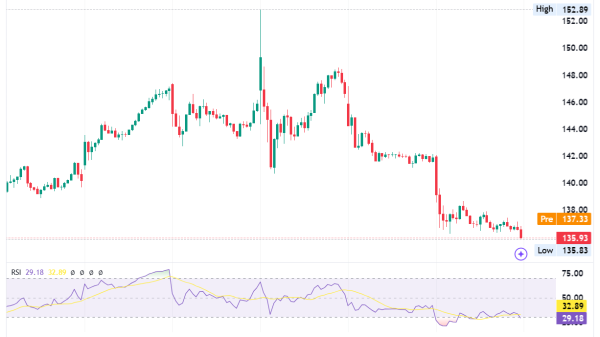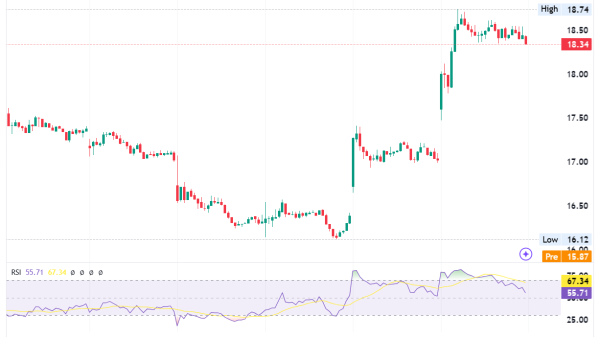Justin Perry was planning a one-night stay in London for early February and booked a room on what he thought was his chosen hotel’s website. It was only after getting a reservation confirmation that he realized he’d used a third-party platform — which charged him $155.92 in service fees on top of the $269.16 room rate.
“I was shocked,” said Perry, who considers himself a frequent traveler and has booked numerous trips on well-known platforms.
Perry, 49, a managing director for a financial services firm who lives in Boulder, Colorado, reserved the room on Jan. 31 after having searched for the hotel on his phone’s mobile browser. On the results page, he tapped a link that started with the hotel’s name and wound up on a page that he didn’t initially notice was operated by GuestReservations.com.
The booking process seemed straightforward, but the big, colorful “confirm reservation” button appeared above the full amount quoted for Perry’s stay, which appeared in less conspicuous text after scrolling to the bottom of the page.
The problem isn’t new, but it could pose headaches for spring breakers — many of whom are opening their wallets wider to book getaways this year. Nearly half expect to drop at least $1,000 on their travel plans, up from 34% last year, according to the travel platform Hopper.
“There are some online travel companies, or other travel agencies that do business online, that do not disclose this information clearly and who charge absolutely egregious fees,” said Henry Hartveldt, the president of Atmosphere Research Group, which analyzes the travel industry. That has been the case for at least the last 15 years, he added.
Government regulators, industry groups and consumer advocates have tried to push back against practices by third-party booking sites that draw frequent customer complaints.
Almost a quarter of travelers, 23%, reported having been misled by third-party resellers, translating to 28.5 million hotel stays worth around $5.2 billion, the American Hotel and Lodging Association found in a 2018 survey, the latest data available. Now, as travel volumes blow past pre-pandemic levels — a record 4.7 billion people are expected to travel this year — more consumers risk similar encounters.
Hartveldt noted that not all third-party booking platforms are unreliable or charge hidden fees. Bigger brands like Expedia and Booking.com are often reliable sources that partner with hotels and resorts to list their rooms. But there’s a plethora of lesser-known affiliate booking platforms, many of which work with larger ones to extend their reach.
That’s often where consumers can get tripped up, Hartveldt said. Some of the sites “design pages to look like they may be a hotel,” he said, “or they are using a hotel logo but displaying that perhaps in a disproportionately large size.”
Perry’s confusion didn’t end after he booked a room with Guest Reservations. The link on his receipt to manage his reservation took him to a different site called GetARoom.com, a platform that the travel industry giant Booking Holdings acquired in 2021 for about $1.2 billion, folding it under its Priceline subsidiary.
Perry called the number listed on his receipt, which he said “was just a customer service number — it doesn’t say where it’s going to — but when you get somebody, it’s GetARoom.com.” After about two hours of haggling, Perry said he was refunded the full service fee.
A spokesperson for GetARoom said it provides hotel inventory to booking platforms, including Guest Reservations, but isn’t involved in its customer experience or marketing. “In all instances, GetARoom complies with its legal requirements, takes its compliance obligations seriously and responds to investigations promptly and in accordance with the law,” she said.
A Guest Reservations spokesperson said the company is “committed to providing customers with an easy and transparent way to book stays at hotels worldwide. Similar to when booking directly through a hotel, customers are charged for applicable taxes, including any hotel taxes.”
“By charging a service fee on all reservations, we are able to offer 24/7 customer support and operate as an independent travel network,” the spokesperson said. “All fees, tax recovery charges, and terms are clearly displayed on the website.”
While the Federal Trade Commission is now in a rulemaking process to ban “junk fees” that raise the prices of hotel rooms and other consumer purchases, arrangements between large booking platforms and smaller affiliates are a long-standing part of the travel industry.
A key factor that can draw scrutiny from the FTC and consumer advocates is whether booking platforms (of any size) engage in deceptive advertising practices. Federal regulators have brought complaints against third-party booking sites on those grounds in the past.
The FTC has never filed a complaint against either Guest Reservations or GetARoom, but it did so in 2017 against another third-party booking platform called ReservationCounter.com and its parent companies, after consumers complained the site posed as the hotel websites they wanted to book on. The companies settled with the agency that year over allegations that they misled consumers with deceptive marketing.
Larger companies were supplying hotel room inventory to those websites through their affiliate programs, the FTC said, describing how the arrangements worked in its 2017 complaint. The smaller firms signed agreements with big platforms such as Expedia, Priceline and Orbitz to obtain inventory, the agency said, but “they advertise and market the available hotel rooms through their own advertisements, websites and call centers” in return for fees.
The Better Business Bureau frequently hears from consumers who mistake booking sites for hotels themselves, often because of the platforms’ advertising tactics, spokesperson Melanie McGovern said. “That’s a lot of the complaints we get about the third-party booking sites,” she said.
Many sites buy ad space appearing at the top of search results pages for key terms, she said. So consumers who want to book directly, rather than with third parties, should scroll past the sponsored ad results and look in the organic results that often appear beneath them. The BBB recommends always reviewing the terms and refund policies before you buy.
If you book with a third-party platform and get charged a surprise fee, the BBB advises calling the customer service line first. If you can’t get through, contact your credit card company to stop or dispute the charge, McGovern said. You can also file a complaint with the bureau.
“It’s really important, as consumers, that we do those checks — that we check with BBB, that we check with our friends and family — to make sure that a site is real before we put any kind of information in it,” McGovern said.






























